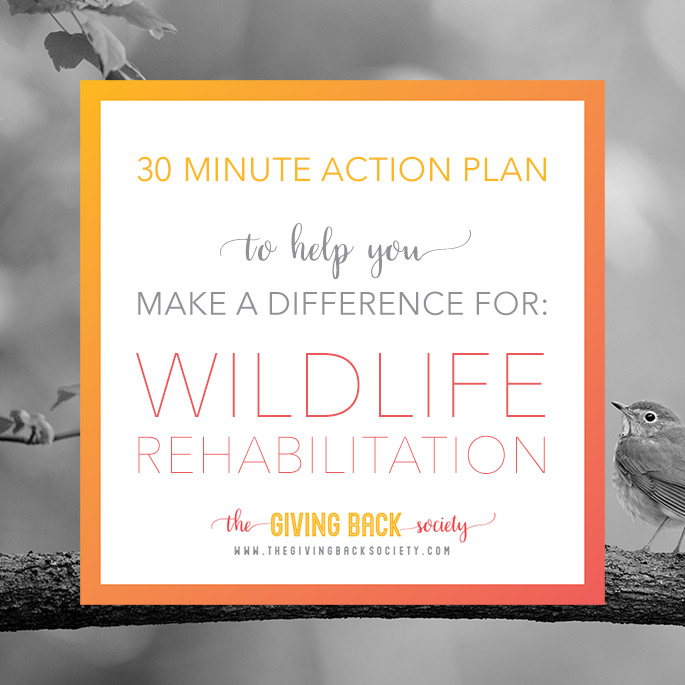Our cause this week is Wildlife Rehabilitation — you can find a recap of the problem here.
30 MINUTE ACTION PLAN:
Learn to Recognize Distressed Animals. Many calls received by rehabilitators are about animals that would be best if left alone. Your involvement in some of the cases can cause death instead of preventing it. So researching what to do is your best plan of action. Here are a few guidelines to get you started, but again, each situation is different so please contact your local rehabilitator before taking action.
Turtles. When you see a turtle crossing the road, help them along. Wearing gloves (and being cautious with a snapper!), help them to the side of the street in the direction that they were heading. If, sadly, the turtle has already been hit, it’s important to know that they might still be alive inside the broken shell and in need of help.
Bunnies. Check before you mow! Bunnies often nest in grassy areas, usually under some dried leaves. If you do find a nest, leave them there and watch from a distance to be sure mama comes back before thinking they’re in distress.
Birds. If a baby bird falls from a nest, the best chance it has for survival is to be put back into its nest. Don’t worry about your scent — it won’t keep mama bird away. If the bird has feathers and is hopping around on the ground, it could just be learning to fly and look for food. Observe before bringing them to a rehabilitator.
Deer. Fawns are often left unattended while mom is off looking for food (usually not far away). If you see a baby deer, wait and watch from a distance for mom to return. If she doesn’t, then consider calling a rehabilitator, but give her a chance first.
Opossums. Sadly, opossums are often hit by cars, but what many people don’t realize is that even if mama has been killed, she could still have live babies in her pouch. You could save a bunch of lives by double-checking. Keep in mind that opossums can eat up to 4,000 ticks a week, so we want to keep them around!

